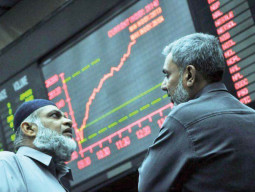
In 2012 summit participants should set the goal of constructing a global new deal for sustainable development that could finally bridge the divide between the industrialised countries of the global “North” and the developing ones of the global “South”. Overconsumption on the one hand and abject poverty on the other were the great planetary scourges of 1972. These issues remained the great challenge in 1992. And they continue to plague humanity today. We can think of at least three reasons why the 2012 summit may be the place to finally forge a durable North-South new deal for sustainable development, and link economic and social development needs with environmental issues more effectively.
First, the devastation caused by the recent global financial crisis has highlighted the need for fundamentally rethinking the structure of the global economic – and developmental – system. In both 1972 and 1992 many government representatives argued that major change was unaffordable. Today, there is a growing recognition that status quo is not a viable option. Changes to global development structures and plans are not just needed, they are inevitable.
Recent talk of a new “green economy” is welcome. But it is not enough. Any global order needs to also focus on the needs of the poor. Greenness as well as social justice are needed for both the poor and the affluent. The only way to meet both those goals is through sustainable development.
Second, the North is a little less “North” and the South a little less “South” than it used to be. And both may be ready for change. The world of 1972 was defined by the bipolarity of the Cold War. By 1992 scholars had arrogantly proclaimed an “end to history” and there were high hopes of entering a new era of uniformity and prosperity. Instead, countries have coalesced into many different regional blocs and political forums, as for example seen at the Copenhagen climate change meeting last year.
However, in the power flux that now defines the world also lie the seeds of a possibly more equitable – and sustainable – order.
This will not come automatically, nor will it be easy to achieve. But the conditions for trying are more ripe today than perhaps ever before. Sustainable development provides a conceptual framework to do exactly that. Third, the inability to deal with climate change through conventional politics has jolted the world into the realisation that a new approach is needed, and sustainable development is the answer.
Climate change is crucial, but it would be a pity if the 2012 summit gets hijacked by carbon-focused discussions and drowns in the same sea of nothingness that devoured the Copenhagen meeting. On a planet that struggles with mitigation as well as adaptation, a deal on sustainable development may not only spur a climate agreement, it just may be a precondition for it.
As delegates prepare for Rio+20, they should seek to craft a global new deal for sustainable development. A deal that could finally help bridge the North-South divide by tackling poverty as well as over-consumption, environmental degradation, social justice and greenness of the economy along with sustainable livelihoods.
Published in the Express Tribune, May 15th, 2010.



1730959638-0/trump-(19)1730959638-0-165x106.webp)













COMMENTS (2)
Comments are moderated and generally will be posted if they are on-topic and not abusive.
For more information, please see our Comments FAQ